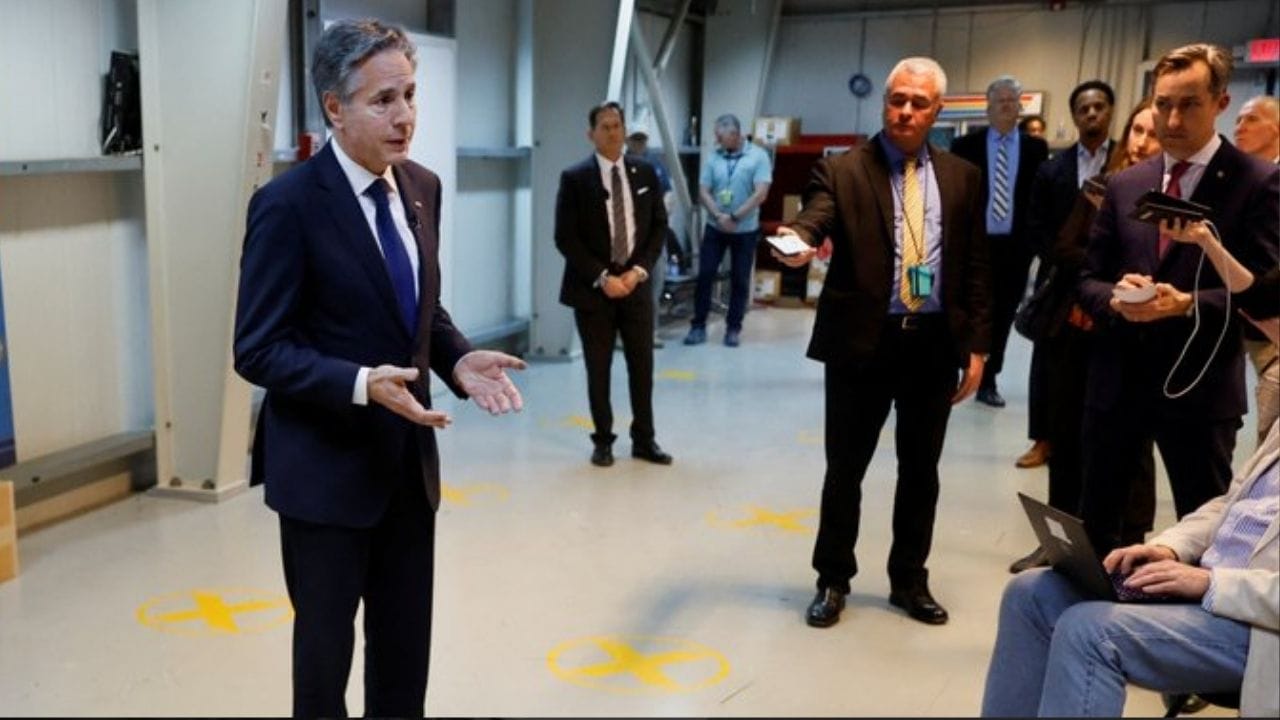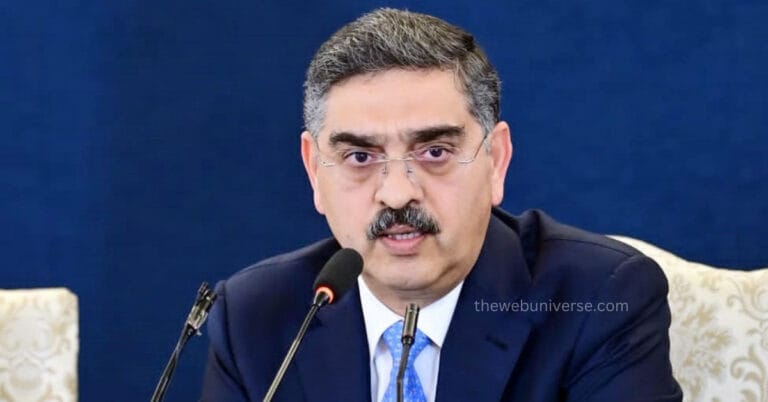Antony Blinken’s Unannounced Iraq Trip Amid Israel-Gaza War Spillover Fears

United States Secretary of State Antony Blinken made an unexpected visit to Iraq during his multi-country tour of the Middle East. This visit comes at a critical juncture, as growing concerns mount over the potential escalation of the Israel-Hamas war into a broader regional conflict.
Blinken’s discussions with Iraqi Prime Minister Mohammed Shia al-Sudani aimed to seek Baghdad’s assistance in addressing attacks on US forces, which the United States attributes to Iran-backed groups. In this article, we will explore the significance of Blinken’s visit, its implications on regional stability, and the context of the Israel-Gaza war spillover fears.
Diplomatic Objectives
Antony Blinken’s visit to Iraq was a pivotal move in the United States strategy to maintain regional stability. Washington has been striving to gain Iraqi support in curbing attacks on US forces, often attributed to Iran-backed militias operating within the country. During their meeting, Blinken emphasized the importance of Iraqi sovereignty and the shared commitment to preventing violent activities carried out by militia groups.
Regional Context
The visit to Iraq follows Blinken’s stops in Israel and Jordan, reinforcing the United States’ diplomatic efforts in the Middle East. The urgency of containing the crisis in the region and preventing its further spread was stressed by Prime Minister al-Sudani, who called for a ceasefire in Gaza.
This call reflects the mounting concern over the death toll from Israel’s war with Hamas, which has sparked outrage in Arab countries and among various armed groups in the region.
Escalation at the Lebanon-Israel Border
Notably, recent developments along the Lebanon-Israel border have further raised tensions in the region. Lebanese officials accused Israel of an air raid that resulted in the tragic deaths of four civilians, including three children.
Hezbollah, an armed group based in Lebanon and supported by Iran, responded with a warning that “the enemy will pay the price.” This incident highlights the volatile situation along the border, which has seen regular cross-border clashes between Israel and Hezbollah, akin to the ongoing conflict between Israel and Hamas.
Regional Conflict Concerns
Hezbollah’s leader, Sayyed Hassan Nasrallah, cautioned against ruling out the possibility of a broader regional conflict as long as Israel continues its bombardment of Gaza.
The ongoing violence in Gaza, which has claimed numerous lives, has raised concerns about regional stability. Hamas, backed by Iran like Hezbollah, launched attacks on Israel on October 7, leading to a substantial death toll, primarily affecting civilians.
Upcoming Talks and Escalation Fears
Following his visit to Iraq, Antony Blinken arrived in Turkey, where he is expected to engage in talks with his Turkish counterpart, Hakan Fidan.
However, the Iran-backed group Kataib Hezbollah issued a warning of “an unprecedented escalation” in response to Blinken’s visit. These warnings underscore the volatile nature of the region and the potential risks associated with diplomatic efforts in such a complex geopolitical environment.
Conclusion
Antony Blinken’s unannounced visit to Iraq amidst the Israel-Gaza war spillover fears demonstrates the United States’ commitment to regional stability and diplomacy. The regional context, escalation at the Lebanon-Israel border, and the concern over a broader regional conflict underscore the complexities and challenges involved in managing the situation.
As the diplomatic efforts continue, it remains to be seen how they will impact the ongoing crisis in the Middle East and whether they can help prevent further escalation. The region, characterized by longstanding tensions and conflicts, remains at a delicate juncture, with the world closely watching the developments in the Israel-Gaza conflict and its potential spillover effects.
FAQs
Why did Antony Blinken visit Iraq during his Middle East tour?
Antony Blinken’s visit to Iraq aimed to seek the support of the Iraqi government in addressing attacks on US forces, which have been attributed to Iran-backed groups. The visit is part of the United States strategy to maintain regional stability and prevent the potential spillover of the Israel-Hamas conflict into a broader regional conflict.
What is the significance of the situation along the Lebanon-Israel border in the context of this visit?
Recent events at the Lebanon-Israel border have raised concerns about regional stability. The accusation of an Israeli air raid killing civilians in Lebanon and the subsequent warning from Hezbollah highlights the volatile nature of the border region and the potential for escalating tensions in the broader Middle East.
What are the concerns regarding a broader regional conflict in the Middle East?
Hezbollah’s leader, Sayyed Hassan Nasrallah, has warned that a broader regional conflict cannot be ruled out as long as Israel continues its bombardment of Gaza. The ongoing violence in Gaza and the involvement of Iran-backed groups in various conflicts raise concerns about the potential for a wider regional confrontation.
What diplomatic efforts are being made to address the Israel-Gaza conflict and its potential spillover?
Antony Blinken’s visit is part of the United States’ diplomatic efforts to address the Israel-Gaza conflict and prevent its escalation. Washington is engaging with regional partners, including Iraq and Turkey, to seek support for containing the crisis and promoting peace in the region. However, the warnings of potential escalation highlight the complexities of these diplomatic endeavors.






